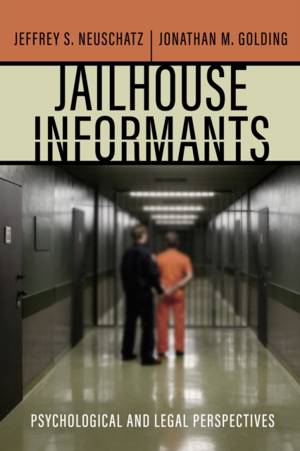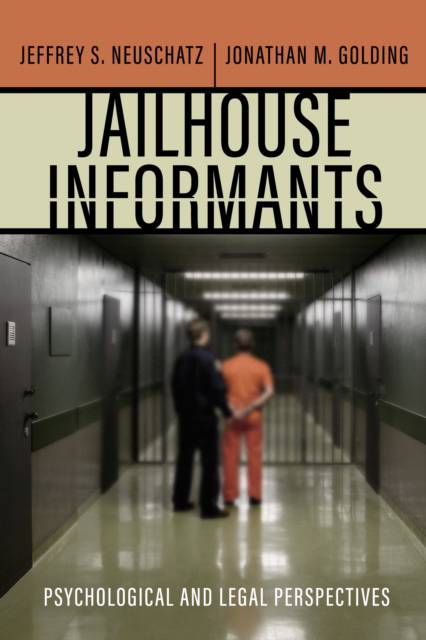
- Afhalen na 1 uur in een winkel met voorraad
- Gratis thuislevering in België vanaf € 30
- Ruim aanbod met 7 miljoen producten
- Afhalen na 1 uur in een winkel met voorraad
- Gratis thuislevering in België vanaf € 30
- Ruim aanbod met 7 miljoen producten
Zoeken
€ 150,95
+ 301 punten
Uitvoering
Omschrijving
Offers a new understanding of jailhouse informants and the role they play in wrongful convictions
Jailhouse informants--witnesses who testify in a criminal trial, often in exchange for some incentive--are particularly persuasive to jurors. A jailhouse informant usually claims to have heard the defendant confess to a crime while they were incarcerated together. Research shows that such testimony increases the likelihood of a guilty verdict. But it is also a leading contributor to wrongful convictions. Informants, after all, are generally criminals who are offering testimony in return for some key motivator, such as a reduced sentence. This book offers a broad overview of the history and legal and psychological issues surrounding the testimony of jailhouse informants. It provides groundbreaking psychological research to address how they are used, the number of convictions that have ultimately been overturned on other evidence, how such informants are perceived in the courtroom, and by what means jurors might be informed about the risks of this type of testimony. The volume provides a much-needed examination of legal remedies to the impact of jailhouse informants and suggests best practices in dealing with jailhouse informant testimony in court. There is a critical need to understand the influence of jailhouse informants and how their testimony can best be handled in court in the interests of justice. Jailhouse Informants is the first work of its kind that rises to the challenge of answering these difficult questions.Specificaties
Betrokkenen
- Auteur(s):
- Uitgeverij:
Inhoud
- Aantal bladzijden:
- 208
- Taal:
- Engels
- Reeks:
Eigenschappen
- Productcode (EAN):
- 9781479803309
- Verschijningsdatum:
- 8/03/2022
- Uitvoering:
- Hardcover
- Formaat:
- Genaaid
- Afmetingen:
- 152 mm x 229 mm
- Gewicht:
- 439 g

Alleen bij Standaard Boekhandel
+ 301 punten op je klantenkaart van Standaard Boekhandel
Beoordelingen
We publiceren alleen reviews die voldoen aan de voorwaarden voor reviews. Bekijk onze voorwaarden voor reviews.











